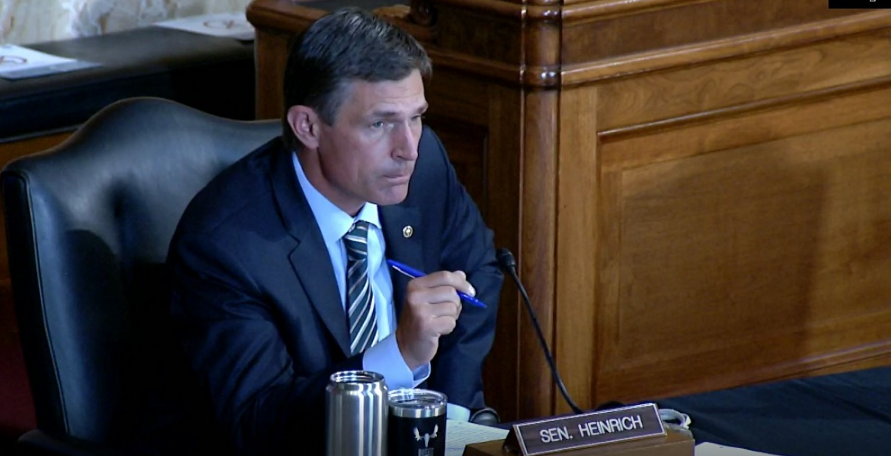Tax credits that recently passed the New Mexico Legislature and the U.S. Congress will improve child poverty and equity issues, according to child welfare advocates.
The New Mexico Legislature passed HB 291, a bill that will raise revenue by about $5 million annually, said James Jimenez, executive director of New Mexico Voices for Children. The bill, whose lead sponsor was Rep. Javier Martinez, D-Albuquerque, improves the state’s Working Family Tax Credit and the Low Income Comprehensive Tax Rebate, he said.
Gov. Michelle Lujan Grisham’s office still has to sign the bill. Her office is reviewing the measures the Legislature passed, spokesperson Nora Meyers Sackett told NM Political Report.
“Certainly having already expanded the Working Families Tax Credit during her tenure the governor recognizes the importance of further expanding those kinds of benefits to New Mexico working families,” Meyers Sackett wrote in an email.
Jimenez called New Mexico’s tax policies “regressive,” meaning that those who make the least pay the most in taxes percentage-wise.
“When you combine all state and local taxes, you still have a regressive tax structure but these two tax credits improve it substantially,” Jimenez said.
Because 75 percent of New Mexico’s children are children of color and a disproportionate share of people of color live below the poverty level, the new tax credits that families will be able to collect will bring greater equity to New Mexico families and children of color, Jimenez said.
“Tax policy is not race neutral,” he said.
In addition to New Mexico’s new tax policy, President Joe Biden signed the $1.9 trillion American Rescue Plan Act of 2021 earlier this month after Congress passed the legislation. The bill is intended to provide economic relief during the COVID-19 pandemic.
The plan offers a one-time direct payment of $1,400 per eligible adult and child recipient, an extension of Supplemental Nutrition Assistance Program (SNAP) benefits through 2021, a fully refundable Child Tax Credit valued at $3,000 per child between ages 6 and 17 and $3,600 per child under 6. It also provides an expansion of the Child and Dependent Care Tax Credit. The Internal Revenue Service must make payments to eligible families in the second half of 2021.
The plan also offers some additional funding for child care assistance and rental assistance. The Center on Poverty and Social Policy at Columbia University has said that the benefit of the federal policies through the federal plan could positively impact over 12 million in the U.S. population who are currently living in poverty.
New Mexico Senator Martin Heinrich, a Democrat, spoke virtually during a press conference Thursday about the tax credits the American Rescue Plan will make available to families with children.
“Some have called this expansion the children’s version of Social Security because of what it will do to lift children out of poverty,” Heinrich said.
He also said he is part of a group working on a letter to the White House requesting that the federal aid to families with children will be made permanent. Currently, the federal tax credit increase is for 2021 only.
While the federal tax credits will help many people, Emma Mehrabi, Children’s Defense Fund Poverty policy director, said during the virtual press conference that the families of immigrant children will not be able to benefit from the federal aid.
“As we think of permanency, there are lots of kids left out, even though this is a great expansion. Immigrant kids are not included in this policy at all,” she said.
But, Heinrich said the federal child tax credits could cut the nation’s child poverty rate in half.
“As a dad, I know on a very personal level when we invest in our kids, we’re making an investment in their future and in the entire country,” he said.
This article was originally posted on State and federal child tax credits improve equity for children of color in the state






Be First to Comment